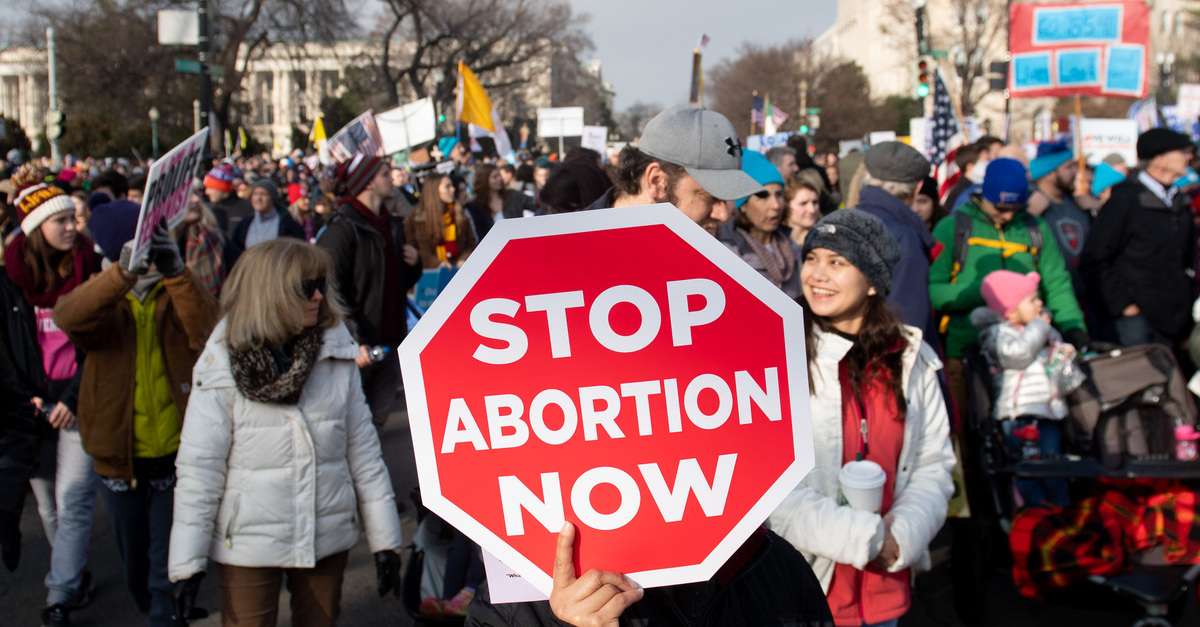 The one-issue voters who cast their Trump votes in a hope that Roe v. Wade would become a thing of the past are about to see if they got what they paid for.
The one-issue voters who cast their Trump votes in a hope that Roe v. Wade would become a thing of the past are about to see if they got what they paid for.
The U.S. Supreme Court is about to decide June Medical Services, LLC v. Gee, which will give the us a chance to see if the addition of Justices Neil Gorsuch and Brett Kavanaugh to the SCOTUS roster will make any actual difference to Gilead-hopefuls.
The case is one in which the legal subtleties matter; it does not present the question of whether or not to overturn Roe v. Wade, the case which held that a woman’s right to have an abortion was implied within a right to privacy found within the First Amendment. Rather, it pushes the limits of Planned Parenthood v. Casey, the post-Roe case that set out the rule that states may regulate pre-viability abortions so long as those regulations aren’t so strict as to constitute an “undue burden” on women.
Speaking of undue burdens, litigants in June Medical Services will be asking SCOTUS to uphold a 2014 Louisiana statute that’s basically identical to a Texas law struck down as unconstitutional in the 2016 Whole Woman’s Health v. Hellerstedt. Pro-lifers are hoping that this second bite at the apple will give a new court the chance to throw common sense out the window in the name of protecting the unborn.
The Louisiana “Unsafe Abortion Protection Act” requires any doctor performing an abortion to have admitting privileges at a hospital within 30 miles of their clinics. You know, because when assessing the safety of a medical procedure, it’s critical that the doctor hasn’t traveled more than half an hour. Snicker.
Proponents of the Louisiana law insist that whatever inconvenience the law causes to pregnant women is justified by the important safety benefits it confers. While we’re talking about the practical effects of the law, now would be a good time to point out that somewhere in the neighborhood of 10,000 women seek abortions in Louisiana each year. If those women were now forced to go only to doctors with admitting privileges at nearby hospitals, it would mean that only one doctor in the state meets the requirements. It hardly takes a legal genius to understand that such limitations seek to regulate abortion right out of existence in Louisiana. While it’s not a one-for-one comparison, I’m guessing conservatives would have no trouble understanding how a law that would close all but one gun shop would constitute an undue burden on Second Amendment rights.
As soon as the Louisiana law was passed, litigation began and the Fifth Circuit issued a preliminary injunction to stay the enforcement of the law pending the final outcome of the lawsuit. That stay is what’s before SCOTUS now. The statutes in Whole Woman’s Health and June Medical Services are nearly identical, but the makeup of the Court has changed dramatically. The 2016 majority decision was authored by Justice Stephen Breyer and joined by Justices Anthony Kennedy, Ruth Bader Ginsburg, Sonia Sotomayor, and Elena Kagan. The dissent, authored by Justice Clarence Thomas, was joined by Justice Samuel Alito and Chief Justice John Roberts.
Now, without Kennedy and with two new conservative voices, the dynamic of the court is likely to be markedly different. Two years ago, Justice Ginsburg was quick to call out an admitting-privileges requirement as unnecessary and overly burdensome:
Texas argues that H. B. 2’s restrictions are constitutional because they protect the health of women who experience complications from abortions. In truth, “complications from an abortion are both rare and rarely dangerous.”
Ginsburg is likely to bring up the same pragmatic concerns this week in June Medical Services. What will be interesting to see totally infuriating is how a potential conservative majority would explain an outcome that differs from that in Whole Women’s Health. Will the Court cop to simply having the right numbers to allow it to und0 past precedent and burn stare decisis to the ground? Or will it come up with some bizarre way to distinguish the two cases? Perhaps it’ll bow out and decide the case on the elusive “other grounds” we often see in controversial cases.
While the impending outcome is limited in that it involves one requirement in one law in one state, the Court’s decision will serve as a litmus test for Trump appointees. Whether Trump’s SCOTUS will deliver as promised to voters and begin to erode reproductive rights in earnest isn’t entirely clear, but without Justice Kennedy, the opportunity is unquestionably there for the taking.
[Image via Saul Loeb/Getty Images]
This is an opinion piece. The views expressed in this article are those of just the author.